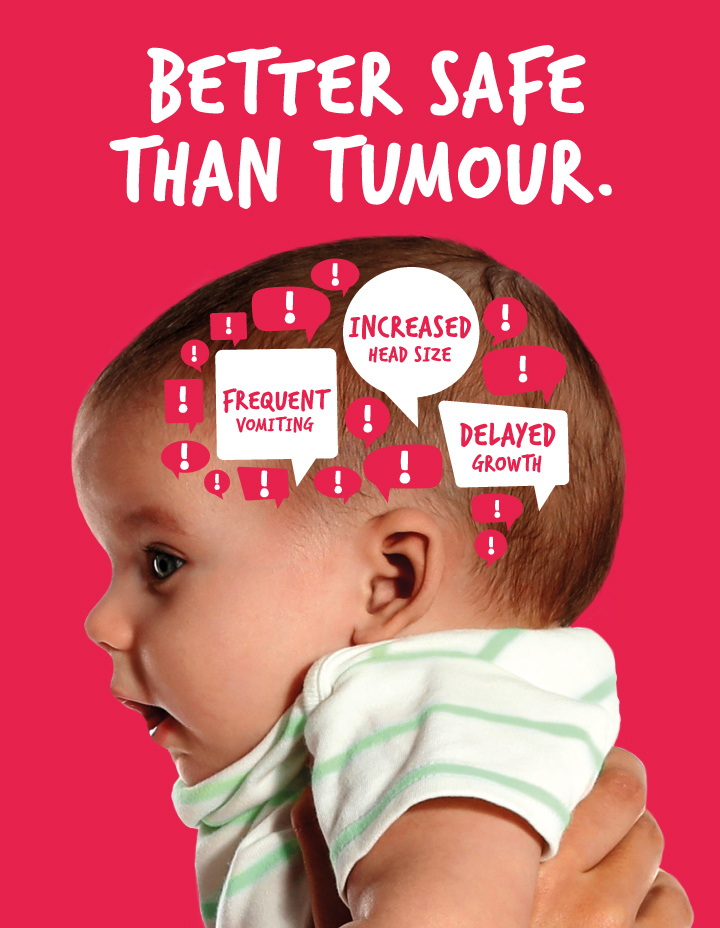Vision change in a child
Many children will experience changes to their vision, abnormal eye movements and other visual abnormalities. Most of these are not caused by a brain tumour. But, vision changes can sometimes be signs of a brain tumour.

On this page, we’ll discuss the vision changes in a child that might be signs of a brain tumour and what to do if you notice them. We’ll cover:
- When might vision changes be a sign of a brain tumour in a child?
- Can a squint be a symptom of a childhood brain tumour?
- How to spot vision changes in children or babies
- My child might have a brain tumour, what should I do?
Other symptoms
Use our Better Safe Than Tumour symptom checker to check for other brain tumour symptoms.
Talking to your doctor
Learn more about how to approach your GP.
Get your free Information Pack
Our Brain Tumour Information Pack can help you better understand your diagnosis and feel confident talking to your medical team.
When might a vision change in a child be a sign of a brain tumour?
There are two main types of vision changes to look out for when looking for signs of a brain tumour in a child:
- Abnormal eye movements such as eyes looking like they are flicking, wobbly or quivering. You should also look out for any change in appearance, like one eye bulging.
- Vision changes such as blurred or double vision or changes in eyesight.
Can a squint be a symptom of a childhood brain tumour?
A common visual abnormality is a squint. This where the eyes look in different directions. It is very rare for a squint to be caused by a brain tumour. If you notice that your child has a squint, this should be checked out by an eye specialist.
How to spot vision changes in children or babies
Babies and young children may show some changes in their behaviour which alert you to a problem with their vision.
This could include a reduced ability to focus on people or toys in front of them or struggling to follow moving objects with their eyes.
They may appear clumsy, stumbling and bumping into things.
Your child may start sitting closer to the television to be able to watch it.
They might become clingy in new situations.
A nursery or school teacher might tell you that they have noticed changes in your child during class, for example struggling to read.
If you are concerned about your child, you should make an appointment with a GP or optician.
I think my child might have a brain tumour, what should I do?
Brain tumours are rare. But, if you’ve noticed a vision change in your child or if your child has more than one symptom of a brain tumour then:
-
Talk to your doctor
GP appointments are usually quite short, so make sure you find out how to best prepare for your child’s appointment. - Get an eye test
If your child’s symptoms are limited to changes in vision and/or headaches, get their eyes tested by an optician before seeing your GP. - Go to A&E
If the symptoms are sudden or severe, you should go to your emergency department or call 999.
In this section

Know the Signs and Symptoms
Although brain tumours are rare, if you or a loved one are experiencing two or more of the signs and symptoms it’s important that you speak to your doctor to rule out a brain tumour.
Share your experiences and help create change
By taking part in our Improving Brain Tumour Care surveys and sharing your experiences, you can help us improve treatment and care for everyone affected by a brain tumour.